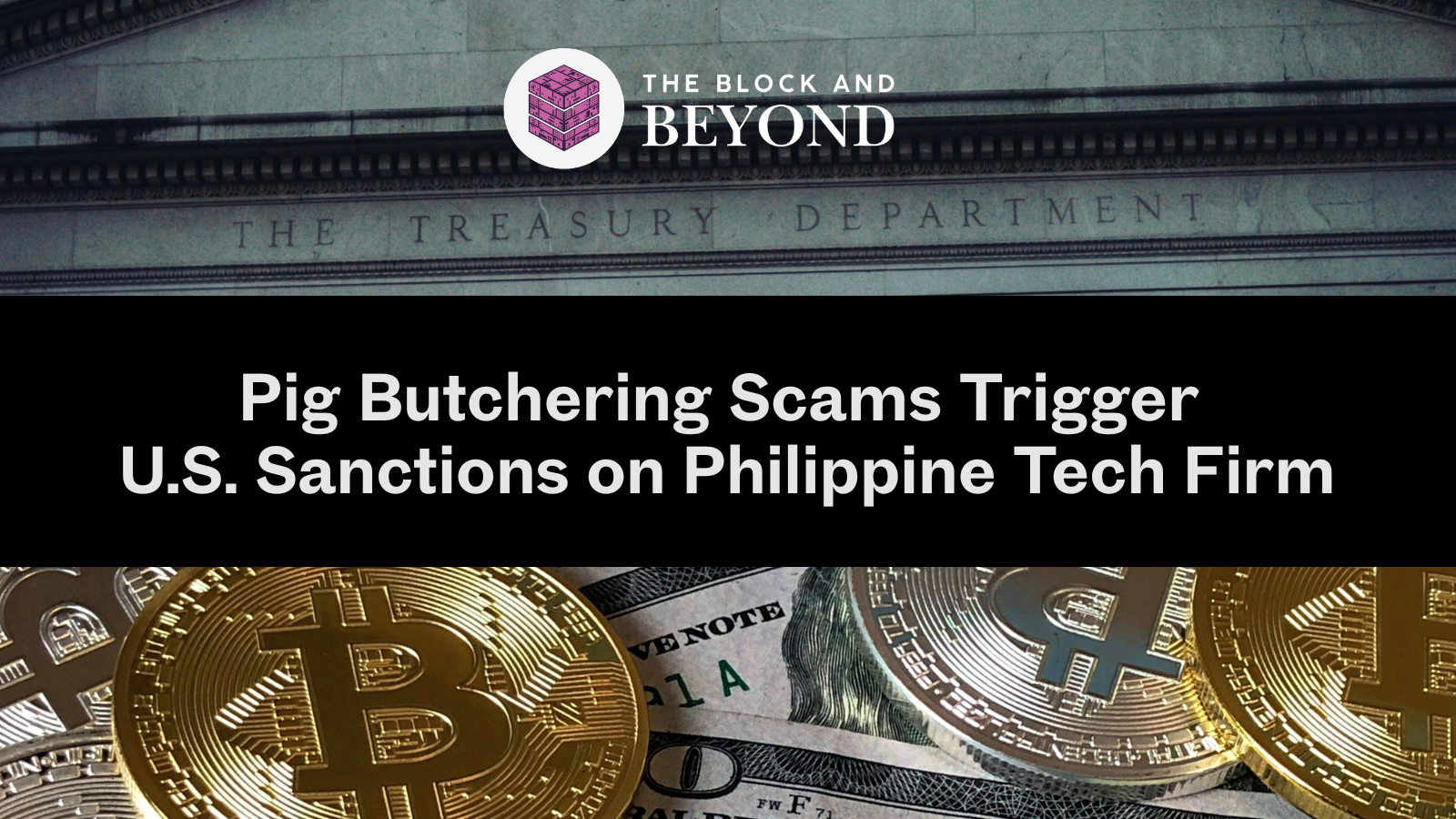The U.S. Treasury sanctioned Funnull Technology Inc. and its administrator for ties to pig butchering scams, escalating pressure on crypto fraud networks.
In a move that underscores the intensifying crackdown on cryptocurrency-related fraud, the U.S. Department of the Treasury's Office of Foreign Assets Control (OFAC) has sanctioned Funnull Technology Inc., a Philippine-based web infrastructure firm. The company, along with its administrator Liu Lizhi, is accused of supporting investment scams known as "pig butchering," a type of fraud that has swept across the virtual asset landscape in recent years.
OFAC also designated two associated crypto wallet addresses, adding them to the Specially Designated Nationals (SDN) list. Compliance firm Chainalysis responded swiftly, integrating these updates into its tools to help clients detect and mitigate exposure.
A New Sanctions Target in the Crypto Ecosystem
The sanctions announced on May 29 target Funnull Technology Inc., which OFAC alleges provided infrastructure services for websites facilitating pig butchering scams. These schemes typically involve fraudsters cultivating online relationships with victims to eventually manipulate them into making fraudulent crypto investments. The move marks one of the first times a technical service provider, rather than the scammers themselves, has been singled out by OFAC.
"Today’s action underscores our focus on disrupting the criminal enterprises, like Funnull, that enable these cyber scams and deprive Americans of their hard-earned savings," said Deputy Secretary of the Treasury Wally Adeyemo in the press release.
The administrator of Funnull, Liu Lizhi, was sanctioned individually for his role in operating the services that enabled the scams. His direct involvement signals a growing focus by U.S. regulators on the individuals behind crypto fraud infrastructure, not just the end perpetrators.
Chainalysis’ Immediate Response
Chainalysis, a blockchain intelligence firm heavily relied upon by regulators and industry players alike, updated its Know Your Transaction (KYT) tools to label the newly sanctioned addresses. The addresses are now flagged as "OFAC SDN Funnull Technology Inc 2025-05-29," and exposure to them will trigger sanctions alerts in accordance with client-configured rules.
"We have labeled the above addresses in our product suite, and will continue monitoring this network and provide updates when possible," Chainalysis said in its blog post.
Chainalysis also reminded users that its suite of free sanctions screening tools, including an API and on-chain oracle, is available to help Web3 developers and decentralized platforms maintain sanctions compliance.
Assessing and Managing Exposure
For businesses and institutions interacting with cryptocurrency, the key question now is how to assess and manage their potential exposure to the Funnull-linked addresses. Chainalysis recommends using the "Sanctioned Entity" category in its KYT platform to identify relevant connections.
"Organizations with exposure to these addresses should seek legal counsel on their responses and obligations to OFAC," the firm advised.
This is especially crucial for centralized exchanges, custodians, and compliance teams tasked with navigating increasingly complex sanctions landscapes.
The Bigger Picture: Cracking Down on Pig Butchering
Pig butchering scams have become a persistent threat in the crypto ecosystem. These scams often originate from organized groups operating in Southeast Asia and target victims globally through social engineering tactics. The naming of a Philippine firm by OFAC highlights the transnational nature of these operations.
"Funnull is linked to the majority of virtual currency investment scam websites reported to the FBI," the Treasury Department stated. "U.S.-based victims of these scam websites have reported over $200 million in losses, with average losses of over $150,000 per individual."
The sanctions against Funnull Technology Inc. suggest that U.S. authorities are moving beyond reactive enforcement and adopting a more systemic approach to crypto crime, focusing on disabling the broader fraud supply chain.
Conclusion
The OFAC sanctions against Funnull Technology Inc. and Liu Lizhi mark a notable shift in strategy, targeting the infrastructure behind crypto scams rather than just the perpetrators. As regulatory scrutiny increases, crypto firms must remain vigilant and proactive in their compliance efforts.
With tools from companies like Chainalysis, they have more resources than ever to stay ahead of the risks. Yet as the pig butchering phenomenon evolves, so too must the responses from both the industry and its regulators.









